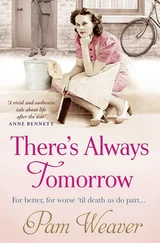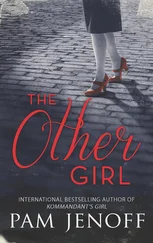Caches of weapons? (“Has anyone ever really seen them? For Lord knows, men always like to talk and boast and exaggerate about weapons.” And in truth, he’d never gotten Traynor to point to any proof here.)
The way Traynor’s reports seemed to match up with the Nottingham magistrate’s informer’s communications, not to speak of the Parliamentary Committee’s report. (What a pity how many poor men needed to sell themselves, to tattle on their fellows.)
“And if their lives were better, Kit? If their petitions hadn’t been refused and they themselves had been treated with some respect when they’d delivered the petition last winter?”
He’d found himself occasionally wondering the same thing.
“But it’s too late now. They’re going to march to London, Mary. I think there will be violent disorder on a scale we’re not accustomed to in Britain. The London delegate told them the time for parliamentary redress was past, and it seems they believe that. I wrote to Lord Sidmouth, recommending that they be arrested. Perhaps that’ll be our only chance to stop this thing.”
“London delegate?”
“Ah yes, the man who was bothering Peggy was one of them. Name of Oliver. Sent from the London Committees, to spread their poison. You can see why I was so exercised, thinking I might get to see him. Traynor sent me a report of the meeting. Williams the shoemaker, his son Merton the stockinger, and his grandson-three generations of revolutionists, all there. Oliver gave a stirring speech-called it ‘The Mother’s Last Admonition to Her Children.’ Said the London Committee could rally seventy thousand men and that the men of the countryside must stand up in support. Very successful, according to Traynor.”
She knit her brow, but didn’t say anything.
“Well?” he asked.
“I don’t know, Kit.”
“At least you didn’t throw anything.”
“I didn’t tell you everything I think either.”
“Would you read the correspondence if I brought it tomorrow? Then you’ll know everything I know.”
“Why would you show it to me?”
“Because you, of all people, know I like to get things… correct. I have a reputation to uphold with you. Because I think I can convince you of my position. Because I know you can be fair-minded when you want to be. Because you’re my wife and I… trust you.”
He was silent for a while. And when he did speak, it was only to ask if she might help him tie his hopelessly spoiled neckcloth.

She’d keep his secret, then. At least for a while. After all, she was keeping her own secret, wasn’t she, about what she’d overheard Nicholas Merton saying this morning, in a pantry just off the kitchen? He’d slipped away soon after, but she’d recognized him even in the dark corridor.
There’ll be guns. You can be sure of it. They know what they’re about in London.
She should tell someone. Perhaps she would have already if the boy’s father hadn’t been forced to run off in fear of the same stupid laws she’d just been arguing about. And then there was the ridiculous fact that he still reminded her of how Kit had once looked.
The boy’s family had had enough troubles. And anyway, he’d probably simply been boasting to impress his mate. Just as Traynor was probably making up the business of the weapons to impress his employer-and to keep him paying for information. If she were a paid informer, she’d certainly exaggerate the evidence in order to keep her employer interested. And men were so unfailingly fascinated-dazzled, really-by talk of weapons, weren’t they?
Which didn’t, however, mean that there wasn’t some plot afoot. Much as she hated to own it, Nicholas had been talking about something; after all, he had been to the meeting-it said so in the damned informer’s letter.
Difficult, painful to think of it happening in her village. Other reform clubs might be plotting violence, but not here, where her mother had done so much charity. Where she and Jessica had recently gone about distributing food and blankets. Where the women were so grateful for a little packet of tea…
Would she be grateful for a little packet of tea?
The truth was that she’d be ruddy furious if a pair of well-intentioned gentlewomen were to descend upon her home with food, smiles, and a blanket-and then disappear back into their pretty, comfortable lives until next time her children took ill or hungry. She’d be proud, prickly, disrespectful, a veritable Nick Merton. Maybe it wasn’t only Kit the boy reminded her of.
She wasn’t sure where any of this led-except to mortal confusion, a possible megrim, and a strong desire to forget all about it. Even as she needed to become Aunt Mary again at dinner, and to try not to drift off into delicious memories of the moment when the doves had taken flight.

“He’s not at all like that,” Elizabeth Grandin told her cousin Fannie, and rather crossly too. “And must you continue to refer to him as my uncle?”
Fannie instantly regretted whatever silly babble she’d evidently let slip from her lips. She’d spoken lightly, and now she couldn’t even recall the words she’d uttered-some nonsense, she expected, about Lord Christopher’s “Byronic” looks, or was it his manners? But Byronic was only a convenience among Fannie and her erstwhile schoolmates, the poet’s name a cipher, regularly employed in reference to all things masculine, attractive, and forbidden.
Not that Elizabeth, poor dear, could be expected to understand such things. No wonder, Fannie thought, that her country mouse of a cousin had responded so warmly, scowled so roundly, and still sat glaring in the front seat of the dogcart, all prickly and proprietary, about the interesting tendre she’d conceived. She felt a surge of protective affection: Elizabeth was acting as any girl of spirit should, in the defense of the first gentleman to arouse a fluttering of excitement in her breast-rather like Fannie and her set at the Misses Duxbury’s Athenaeum for Young Ladies two years earlier.
By now, of course, Fannie’s London schoolmates had learned a measure of worldliness. Still, Fannie was amused, sympathetic, and rather relieved that her cousin was finally beginning to act as she should. Eighteen was awfully old to begin exercising one’s tender feelings toward the male sex, but everyone had to start somewhere, didn’t they?
She smiled her melting smile and dropped a soft, conciliatory kiss onto Elizabeth’s delicately sculpted cheek.
“I didn’t mean to suggest that his manners aren’t entirely proper. It’s only that he does give one rather a frisson, doesn’t he, with those eyes, and that air he has, of being so exceedingly, physically, alive?
“But there’s still no denying that he is your uncle-and will remain so, in any case, until he and your aunt Mary actually divorce. Which will be fascinating in itself, don’t you think? I’ve never met anyone who’s been divorced. We encounter Lady Holland in the park quite regularly, but Mama always insists we avert our eyes.”
The girls were driving back from Rowen through midday air so heavy and moist that they’d loosed the strings and allowed their bonnets to slide to the backs of their necks. The sky was overcast; a rainstorm was on the way. With the sun so well hidden, they’d agreed there could be no risk of their becoming brown or freckled. Unfortunately, there was no one to correct them in this misapprehension. Miss Kimball had jammed herself behind them in the cart, along with the album of Mr. Brown’s original landscaping plans that Fannie had borrowed from the marchioness; her loud snore rose from the seat where Aunt Jessica was given to piling up her charity baskets.
Читать дальше














